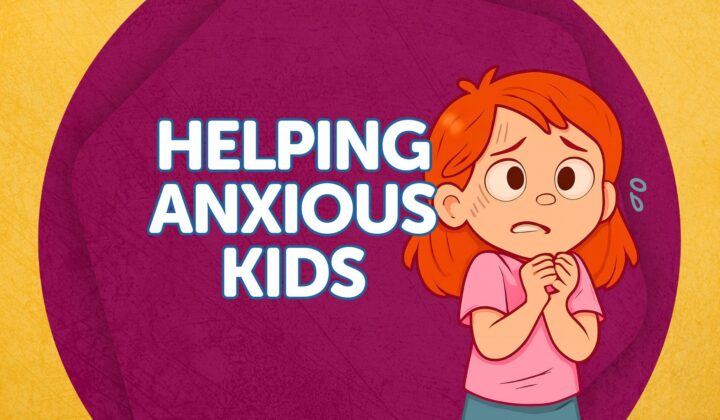Learn more about the journey that led to us equipping kids to carefully evaluate every idea they encounter.
Meet members of our team who have contributed to curriculum development.
Hear from real users of the Foundation Curriculum.
Learn what we believe about God, Jesus, Scripture, and more.
Part 1: How Not to Teach the Bible to Our Kids
As an educational consultant, I interact with thousands of Christian teachers, leaders, and parents. These individuals love God and seek to instruct children in the truth. However, I have observed many unwittingly teach kids faulty methods of Bible reading. If we are not careful, these harmful practices can seep into our own homes, churches, and schools. So, for the next few posts, we will explore several common errors made when instructing children in Scripture.
Error One: Confusing Objective Meaning with Subjective Application
One of the most concerning trends in biblical instruction lies in a simple question - “What does this Bible verse mean to you.” The first time I heard this question, I was observing in a 4th grade classroom at a Christian school. I smiled at the teacher, thinking her question was a joke, and she was about to point out the error to her students. I was wrong. Now, several years later, I have heard this question posed to hundreds of children. I am sure it is well-intentioned, designed to show kids that Scripture applies to their daily lives. However, this question trains children to focus on their subjective interpretation of the Bible, rather than on the text’s objective meaning. Here are three reasons we should avoid this method of biblical instruction.
1. Subjective Interpretation Is Postmodern
Asking our children what a biblical text means to them falsely assumes that Scripture’s meaning comes from the reader rather than the author. This assumption stems from the postmodern worldview. Postmodernism teaches that there is no such thing as absolute truth. Therefore, written works do not contain objective meaning. The reader brings his or her subjective meaning to the text. Sadly, we have allowed this postmodern philosophy to creep into our Bible instruction. The question “What does this verse mean to you?” trains our children to believe that Scripture has different meanings for different people.
2. Texts Have Objective Meaning
This postmodern method of interpreting Scripture does not align with reality. Texts have meaning. Authors always attempt to communicate specific ideas. For example, as I write this blog post, I am trying to highlight a way in which we give our children a faulty understanding of Scripture. You could interpret my writing as sarcasm and believe I am saying just the opposite. However, that interpretation would be wrong. As the author, I have an objective meaning for this text. If you interpret my writing differently, you have not somehow changed the meaning of the text. You have simply misinterpreted it.
3. Scripture Affirms Objective Meaning
The same is true of Scripture. God has an intended meaning for the text in each book of the Bible. Scripture itself makes this clear. 2 Peter 1:20-21 states, “no prophecy of Scripture comes from someone's own interpretation. For no prophecy was ever produced by the will of man, but men spoke from God as they were carried along by the Holy Spirit.” These verses clearly show us that Scripture does not have multiple, subjective interpretations. It might have different applications in a person’s life. But the intended meaning of the text remains the same.
We must be careful not to ask kids, “What does this verse mean to you?” Instead we need to help our children understand that they do not bring meaning to the biblical text, God does. To do this, we should equip them to ask and answer appropriate questions of the text – questions such as, “What is God saying in these verses?” or “What does this verse say about who God is?” When we want to steer them toward personal application, we can ask questions such as “What should we do now that we know this?” or “How can we put into practice what God has said?” These types of questions assist in framing kids’ thinking, showing them that Scripture has a meaning for them to discover, not invent.

About Elizabeth Urbanowicz
Elizabeth Urbanowicz is a follower of Jesus who is passionate about equipping kids to understand the truth of the Christian worldview. Elizabeth holds a B.S. in Elementary Education from Gordon College, an M.S.Ed. in Education from Northern Illinois University, and an M.A. in Christian Apologetics from Biola University. Elizabeth spent the first decade of her professional career teaching elementary students at a Christian school. Elizabeth now works full time on developing comparative worldview and apologetics resources for children. Her goal is to prepare the next generation to be lifelong critical thinkers and, most importantly, lifelong disciples of Jesus.
Related Posts and insights

Addressing Sin Patterns in Children
Learn a biblical approach to repetitive sin in kids: heart questions, confession, gratitude and consequences that train them toward Jesus.

David: A Biblical Worldview Movie Review for Families
A biblical review of the David movie: positive elements, concerning deviations from Scripture, and discussion questions to help your kids think critically.

Helping Children Overcome Fears and Anxiety
Learn biblical strategies to help children overcome irrational fears and anxiety through independence, responsibility, and understanding God's character.
